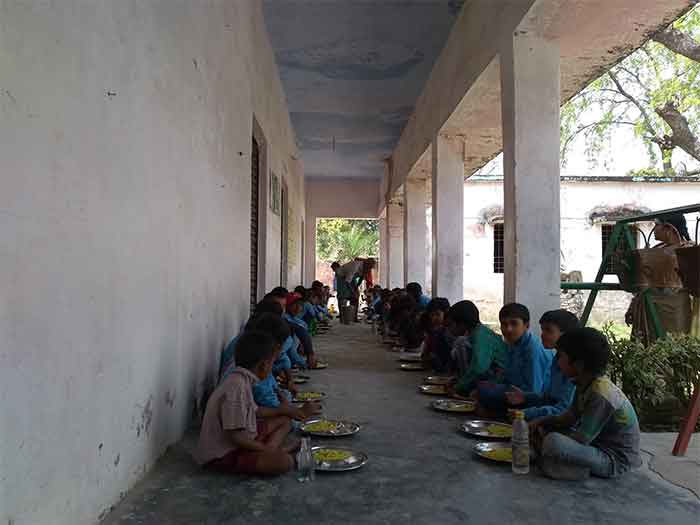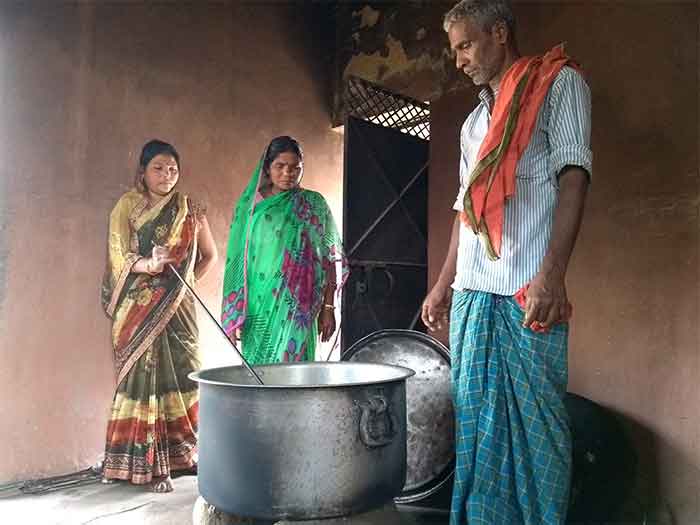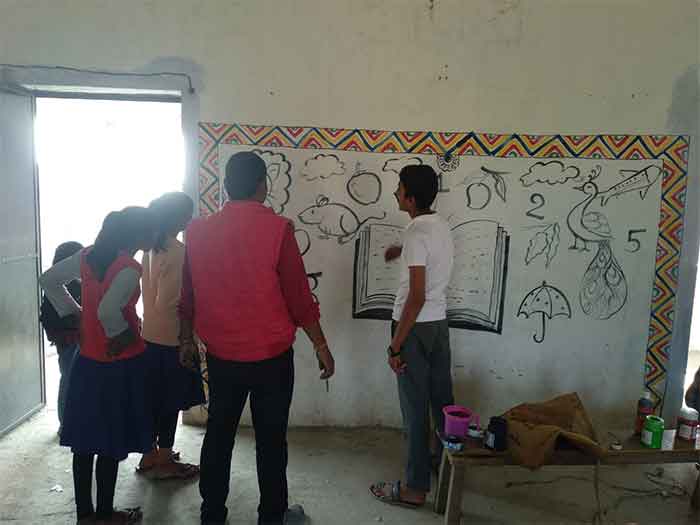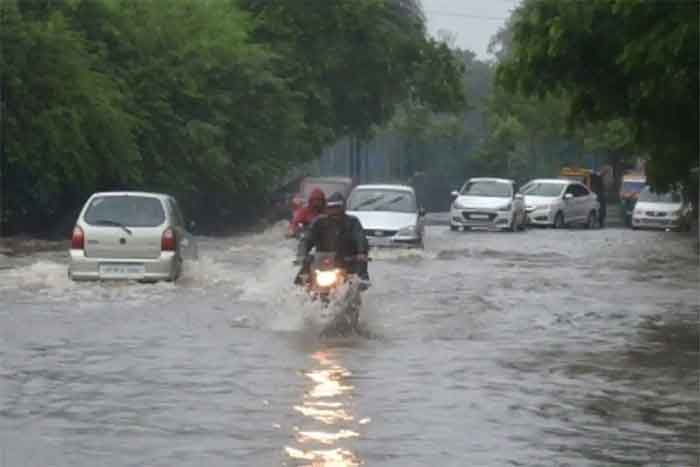
The Covid lockdowns saw thousands of children deprived of schooling across the country and even after resumption of classes many from poorer families have not returned to school.
In Bihar’s Siwan district though two special initiatives are raising hope of tackling the problems of students dropping out by making school truly attractive to the children.
The unique initiatives at government schools of Bharauli and Belhi East, located about 15-20 kms from Siwan are showing how government schools can once again become centers of change for underprivileged children.
First is the example of Adarsh Government Secondary School, Bharauli, where there are eight teachers including the headmaster. The school, of about 383 children, mostly consists of children from Dalit and backward communities.
 Hiralal Sharma, the teacher of this school, says that before the Covid epidemic there was already a trend of a fall in the number of children attending school. In the last few years many families have taken their children out of government schools and enrolled them in private schools. Since the year 2014, the number of children studying here has been decreasing continuously.
Hiralal Sharma, the teacher of this school, says that before the Covid epidemic there was already a trend of a fall in the number of children attending school. In the last few years many families have taken their children out of government schools and enrolled them in private schools. Since the year 2014, the number of children studying here has been decreasing continuously.
This attrition had been stemmed to some extent due to the attraction of the mid-day meal scheme for students from poor families. However, during the Covid lockdowns the school was shut and children could not come for regular classes at all. But now schools have resumed and hopefully children will start coming again and their learning will gather pace.
For children coming to his school the added benefit is from a nutrition garden, in which green vegetables are being grown for the mid-day meal. The concept of Nutri Vatika, to grow vegetables to supplement the mid-day meal in schools is used in other government schools too in Bihar and has proved to be very successful in getting students to attend classes regularly.

As part of this initiative children can understand practical information about nutrition along with food and also the importance of labour. They learn about everything from seeds and plantation to collective care of the garden and this makes them sensitive to the environment also.
Another teacher of the same school, Satish Srivastava, says that when his school opened after the Covid lockdown, the most attention was given to the mid-day meal that it could prove to be especially beneficial for the children of migrant laborers.
“Through the mid-day meal, there is an indirect discussion with the children about nutrition. In this we tell them about malnutrition, good nutrition, sanitation and sports” he says.
According to Satish, children also think about good and bad eating habits through the discussion about the mid-day-meal. Now children are understanding that eating more chocolate is not good, eating green vegetables gives strength. Satish is also thinking of organizing a poster-competition for children on the topic of nutrition.

Hari Yadav, the mid-day-meal cook, explains that for many children coming here, it means that they are getting a good dose of both education and food. He explains how from Monday to Friday, children are being given varied, delicious, fresh and invigorating food. At the same time, Satish says that due to the mid-day meal, the children are staying till after noon.
“Within the social-science book in class VIII, children also read several lessons from the food-safety curriculum. These lessons are about agricultural cooperatives, milk cooperatives and the food storage system” he says.
The second initiative meant to attract students to attend classes is from the Government Secondary School, Belhi East, just a few kilometres away, whose library is being renovated by an artist creating a number of attractive book illustrations on the walls of the school.

The library venture has been started in this school on the initiative of an organization named ‘Parivartan’, which is working on many ideas related to displaying books in an attractive way to engage children. Under this, communicating about books is also being made a part of the library’s work.
“Actually, it is not enough to store a large number of books in a place, it is necessary that a culture should be developed to read these books. Such an environment should be created so that these books reach the hands of the children, attract them and discuss amongst themselves” says Deepak Kumar Singh from ‘Parivartan’.
According to him, a reading corner is being prepared inside the school library. Soon a variety of activities will be organized to display the books on the shelves. Efforts will be made that children are first familiar with all types of books, so that later they can build a good relationship with books and become good readers too.
When schools reopen after the Covid lockdown, it will take a long time for such offline efforts to translate into results. But, such an initiative in a school in remote Bihar gives a clear indication of how a general library can be transformed into a community based and community supported library.
Currently hundreds of books are stored in the library of this school with government and non-government help. The objective of this library-related initiative is to connect children to books outside their regular curriculum and encourage them to read them without any pressure from teachers and examinations.
Among the activities being used for this include games such as musical chairs and treasure hunt also. Additionally through special ‘book talk’ sessions children are learning about the main page of the book and the content within the books. Along with the methods of reading books, they are also learning the skills of reviewing books.
Rajesh Kumar Singh, a teacher here, says that after a long time when schools have started reopening, it has become a complicated task to reconnect children with education. But, due to such undertakings children can gain knowledge in an entertaining way.
Shirish Khare has been associated with rural journalism for a long time and has been continuously reporting on the economic, social and health impacts of rural life during the Corona pandemic.













































